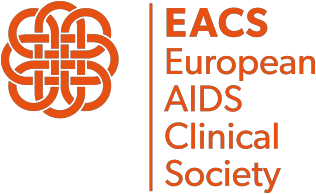Immune Reconstitution Inflammatory Syndrome (IRIS)
| Definition | |
| Paradoxical worsening ("Paradoxical IRIS") or new onset ("Unmasking IRIS") of symptoms during the ART-induced immune-reconstitution period in association with inflammatory signs (by physical exam, imaging or tissue biopsy), after exclusion of the expected course of a treated/untreated OI or drug toxicities | |
| Prevention | |
| Cryptococcal meningitis | |
|
As general principles: - risk of paradoxical IRIS can be reduced by appropriately treating cryptococcal meningitis with an optimal regimen including a fungicidal agent and by deferring ART initiation for 4 to 6 weeks. - unmasking IRIS can be prevented by avoiding ART initiation in undiagnosed cryptococcal meningitis. Therefore, all patients with CD4 T cell counts<100 cells/ µL should be screened for serum cryptococcal antigen, and those with positive results should undergo lumbar puncture to rule out cryptococcal meningitis. Refer also to the specific section on cryptococcal disease. |
|
| Tuberculosis: paradoxical IRIS |
TB meningitis: Corticosteroids are recommended as adjuvant treatment (see also Diagnosis and Treatment of TB in Persons with HIV), but their efficacy to prevent paradoxical IRIS is not established. TB without meningitis: Consider prophylactic prednisone (40 mg qd po for 2 weeks, followed by 20 mg qd po for 2 weeks) in persons with:
i In the reference clinical trial (N Engl J Med 2018;379:1915-1925) persons with rifampin-resistant TB were excluded. In case of optimally-treated rifampin-resistant TB, prophylactic prednisone for IRIS prevention may be considered. |
| Treatment | |
|
In general, OI-IRIS resolve within a few weeks with continuation of specific treatment for the OI, without discontinuing ART and without anti-inflammatory treatment. In life-threatening or other cases where anti-inflammatory treatment is contemplated by the physician, corticosteroids or non-steroidal anti-inflammatory agents can be used. However, little or no data support their use or specific administration schedules in the specific conditions |
|
|
Cryptococcal meningitis-IRIS |
Evidence on specific therapies against IRIS in cryptococcal meningitis is missing. All persons with cryptococcal meningitis-associated IRIS should be carefully evaluated for antifungal therapy optimization and appropriate management of intracranial pressure. If despite these measures life-threatening complications or progressive deterioration develop, a brief course of corticosteroids may be considered. |
| TB-IRIS | Prednisone 1.5 mg/kg/day po for 2 weeks, then 0.75 mg/kg/day for 2 weeks |
| PML-IRIS | Methylprednisolone 1 g/day iv for 3-5 days or dexamethasone 0.3 mg/kg/day iv for 3-5 days, then oral tapering |
